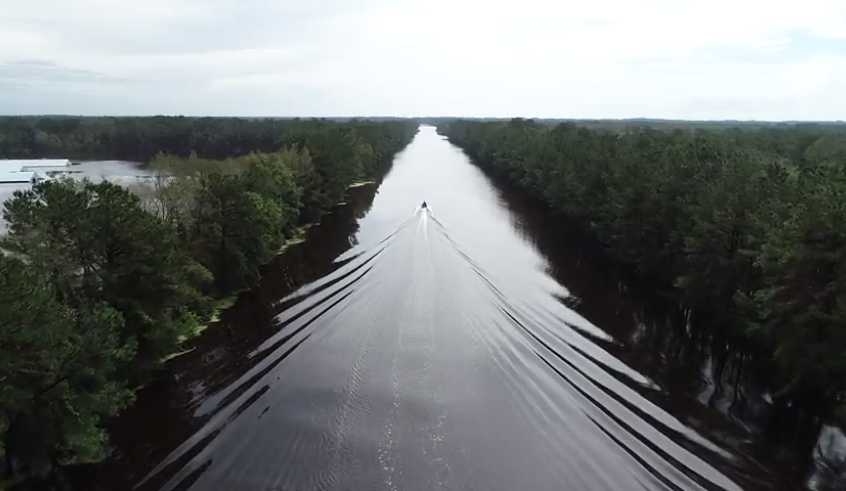Tips for Growers Picking up in the Wake of Florence

Days after Hurricane Florence moved slowly through, Interstate 40 in North Carolina resembles a river rather than roadway.
Photo courtesy of the North Carolina Department of Transportation
One week ago, everybody along the Southeast U.S. coastline was wondering what Hurricane Florence was going to do. Fast forward to today, and what’s remaining of the drenching storm is still wreaking havoc. Mark Hoffmann, Small Fruits Extension Specialist and Assistant Professor at North Carolina State University, has not been able to access local fields for damage assessment yet. For area strawberry growers, he estimates the earliest growers and fieldworkers can apply pre-plant fertilizer and lay plastic would be maybe early next week.
In the meantime, he has provided some useful tips for local specialty crop farmers waiting for the flooding to relent and soggy fields to dry out.
Hoffmann and his colleagues are aiming to assist affected counties and growers in the coming weeks and months with information and direct assistance on: (1) the assessment of damage (2) restoration of farmland and crops (3) pest and pathogen concerns.
“The most important step is to assess damage for insurance purposes,” Hoffmann notes in his latest blog. He goes on to list the following tasks for growers to check off:
- Safety comes first. If you decide it is safe enough to assess damage on your farm, please take following precautions: (1) to have at least one other person with you or let a trusted person know where you are and when they can expect you to be back. (2) Have your cell phone charged and always with you. (3) Have an emergency medical kit, rubber boots, and a respirator with dust filters with you.
- First, take pictures and document the damage, then clean up. The documentation is crucial for insurance purposes and all other following steps.
Hoffmann also highlights that the North Carolina Department of Agriculture and Consumer Services has activated its hotline (866-645-9403) to connect farmers with resources that can assist with agricultural emergencies.
Other useful links and resources:
- Farm Aid disaster assistance information
- Overview of Resources
- FEMA
- USDA Disaster Help: All Programs
- WHIP: Immediate Assistance Program
- USDA Disaster Help Guidelines









